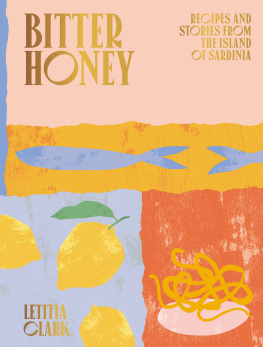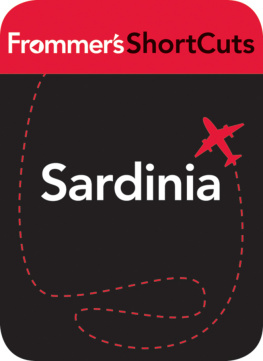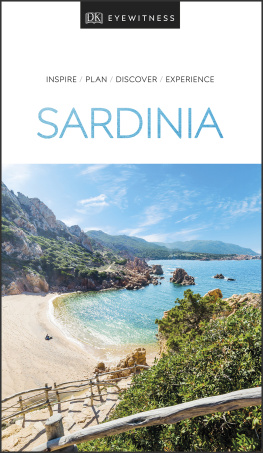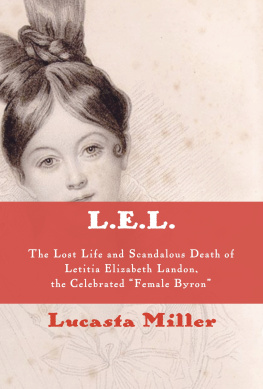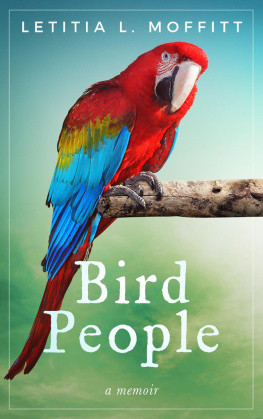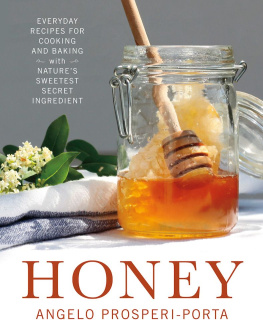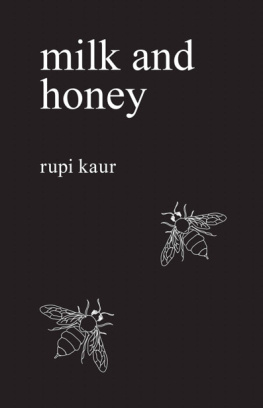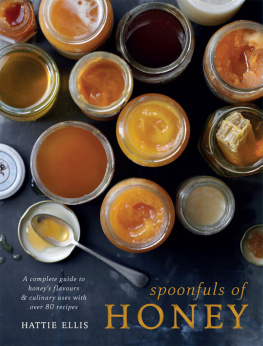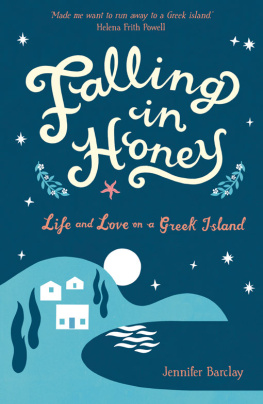Letitia Clark - Bitter honey : recipes and stories from the island of Sardinia
Here you can read online Letitia Clark - Bitter honey : recipes and stories from the island of Sardinia full text of the book (entire story) in english for free. Download pdf and epub, get meaning, cover and reviews about this ebook. year: 2020, publisher: Hardie Grant (UK), genre: Home and family. Description of the work, (preface) as well as reviews are available. Best literature library LitArk.com created for fans of good reading and offers a wide selection of genres:
Romance novel
Science fiction
Adventure
Detective
Science
History
Home and family
Prose
Art
Politics
Computer
Non-fiction
Religion
Business
Children
Humor
Choose a favorite category and find really read worthwhile books. Enjoy immersion in the world of imagination, feel the emotions of the characters or learn something new for yourself, make an fascinating discovery.
- Book:Bitter honey : recipes and stories from the island of Sardinia
- Author:
- Publisher:Hardie Grant (UK)
- Genre:
- Year:2020
- Rating:4 / 5
- Favourites:Add to favourites
- Your mark:
- 80
- 1
- 2
- 3
- 4
- 5
Bitter honey : recipes and stories from the island of Sardinia: summary, description and annotation
We offer to read an annotation, description, summary or preface (depends on what the author of the book "Bitter honey : recipes and stories from the island of Sardinia" wrote himself). If you haven't found the necessary information about the book — write in the comments, we will try to find it.
Letitia Clark: author's other books
Who wrote Bitter honey : recipes and stories from the island of Sardinia? Find out the surname, the name of the author of the book and a list of all author's works by series.
Bitter honey : recipes and stories from the island of Sardinia — read online for free the complete book (whole text) full work
Below is the text of the book, divided by pages. System saving the place of the last page read, allows you to conveniently read the book "Bitter honey : recipes and stories from the island of Sardinia" online for free, without having to search again every time where you left off. Put a bookmark, and you can go to the page where you finished reading at any time.
Font size:
Interval:
Bookmark:

Sardinia is a place lost between Europe and Africa and belonging to nowhere
D.H. LAWRENCE



After God created the earth, he threw the leftover pieces into the Mediterranean Sea. He selected all of the best parts of his creation and placed them upon one of these rocks. This rock he named Sardinia.
SARDINIAN LEGEND
After surveying his work, God realised he had created something too beautiful. There was an imbalance between the beauty of Sardinia and all of the other regions around it. God thought hard about how to redress this balance. And then, he had an epiphany. He created the Sardinians.
SARDINIAN JOKE
PREFACE
It is fair to say that when I began to write this book, I had no idea what I was doing. I was nervous of writing about a culture and a cuisine that was not my own. After worrying quietly about it, I spoke to my boyfriend, Luca:
I dont care what you are scared of Letiiizzzia, he purred in his Sardinian drawl, I care about the food of Sardinia, and I want people to know about it. And anyway he added with a grin now I tell all people you are writing it, and everybody want to know you and to give you elp and recipes, to show you things and tell you stories, and you ere moaning. Ehhh Letiiiiizzzia, its not just about you!
In his characteristically frank style, he reminded me of the potential of this book, and the power of recipe books in general. Recipe books are not just books of recipes. They are also chronicles of traditions, stories and memories. They give us insight into peoples lives, into their habits and their histories. Food is never just food. It is a memory, a moment recaptured in a mouthful. It is friendship, it is love, it is celebration. Often in the modern world of food, it is easy to lose sight of this. In Sardinia, it is not.
I am not Sardinian. This book does not pretend to be a comprehensive guide to the authentic cuisine of Sardinia. Authenticity is a slippery concept, as anyone who writes about food (especially Italian food) will know. Every cook in Sardinia has their own way of doing things, and to them this is the only way. The Sardinian (and Italian) pride for their regional cuisine is in part what makes it so appealing, but the pursuit of authenticity in recipe writing is often a futile affair. Recipes, like any story, memory or history, are a medley of inuences, consequences, necessities and innovations. I was reminded of this recently when Franca Lucas mother described a traditional Sardinian soup recipe which was in fact, without a shadow of a doubt, French onion soup.
When I arrived in Sardinia, I realised many things; about myself, about eating, about cooking. Far too trite to say I found myself and I didnt anyway but I found my food, and thats a pretty good place to start. Before I came here, Id worked in restaurants as a professional chef (though I was never very professional) and lived a gypsy-like existence. Drifting from place to place, from job to job. Id cooked Modern British in a trendy Hackney bistro, Id worked in a Middle Eastern restaurant and grilled enough spiced lamb chops to last me a lifetime. Id trained at a well-regarded, French-inuenced cookery school. I travelled, tasted and tried relentlessly, and I relished each new recipe, each new cuisine.
What I found myself craving most after all this, however, was simplicity. I was tired of trends, of techniques, of turnips cut into triangles. I wanted to eat and to cook good, simple food. I wanted food that was inherently delicious, but didnt take itself too seriously.
Ultimately, I realised, I wanted to cook home-food, not restaurant-food. Food that didnt try to challenge or to transgress. I wanted to nd a cuisine that was so rooted in its for want of a better word roots, that no passing fad or fancy could shake its foundations, or sabotage its simplicity. I wanted integrity. I wanted cheese. I wanted wine made in home as Luca would say served from plastic petrol containers, and olive oil in old Coke bottles that glowed green and owed as freely as water. I wanted vegetables that tasted of themselves and didnt need cutting into cubes, or batons or any other arbitrarily abstract shape. I wanted to get to the jagged core of cooking. I wanted Nonna in her slippers shouting at me to grate my own breadcrumbs (I buy breadcrumbs when shes not looking. Sometimes life is too short, and we must all of us choose our battles). I wanted to go back into a home, to the sink and the stove, where it all began.
The glory of Italian food, and the reason why it remains so endlessly popular, is that it is essentially home-cooking. Just like Mamma used to make. Its a crashing clich, of course, but that doesnt stop it being true. It is interesting that the word casalinga (which translates literally as housewife) is often used to describe rustic, homemade dishes; recipes that are the favourites of so many, passed down from mother to daughter (or son) over many generations. Marcella Hazan, the doyenne of Italian cooking, puts it far better than me:
(Italian cooking) is cooking for the home kitchen there is no such thing as Italian haute cuisine because there are no high or low roads in Italian cooking. All roads lead to home, to the cucina di casa, the only cooking that deserves to be called Italian cooking.
Italian cooking is adored worldwide because it is the food of home, and is therefore, ultimately, comfort food. Comfort food is food that makes you either feel at home, or think of home. It doesnt matter where you are, or whos home you happen to be in, it just instils in you that warm, fuzzy, Winnie-the-Pooh feeling that youre somewhere safe, eating something good, and all is not lost. As I said, Im not Italian not even close but somehow, Italian food takes me home.
So how does the food of Sardinia differ, or compare? Sardinian food is a distilled version of Italian food: simpler, more rustic, more wild. The emphasis on tradition and on the importance of eating well is even more pronounced here on this forgotten island. Even more of its ancient delicacies are preserved, even more of its produce grown or made at home.
Sardinia has become my home, and as soon as I moved here, I was reminded that good food is not about being a slave to authenticity, or about complication, technique, or trends, but about sharing, about people and most importantly about enjoyment (and also, as you will discover, quite a lot about cheese). The Sardinians I have met have welcomed me into their homes. They have shared their time, their knowledge, their meals and their recipes, with no motive other than their immense love for life, for their land and for their cuisine.
I hope this book will inspire some of that love in your home, too.
Buon Appetito!
A NOTE ON THE PREFACE
Since beginning this book three years ago, many things have changed, most signicantly that Luca and I are no longer a couple. He inspired in me the same passion he felt for the food of his home, and for this I will always be grateful. I will think of him whenever I drink a bad espresso, or roast a good chicken.
14th November 2019
Letitia Clark

Font size:
Interval:
Bookmark:
Similar books «Bitter honey : recipes and stories from the island of Sardinia»
Look at similar books to Bitter honey : recipes and stories from the island of Sardinia. We have selected literature similar in name and meaning in the hope of providing readers with more options to find new, interesting, not yet read works.
Discussion, reviews of the book Bitter honey : recipes and stories from the island of Sardinia and just readers' own opinions. Leave your comments, write what you think about the work, its meaning or the main characters. Specify what exactly you liked and what you didn't like, and why you think so.

